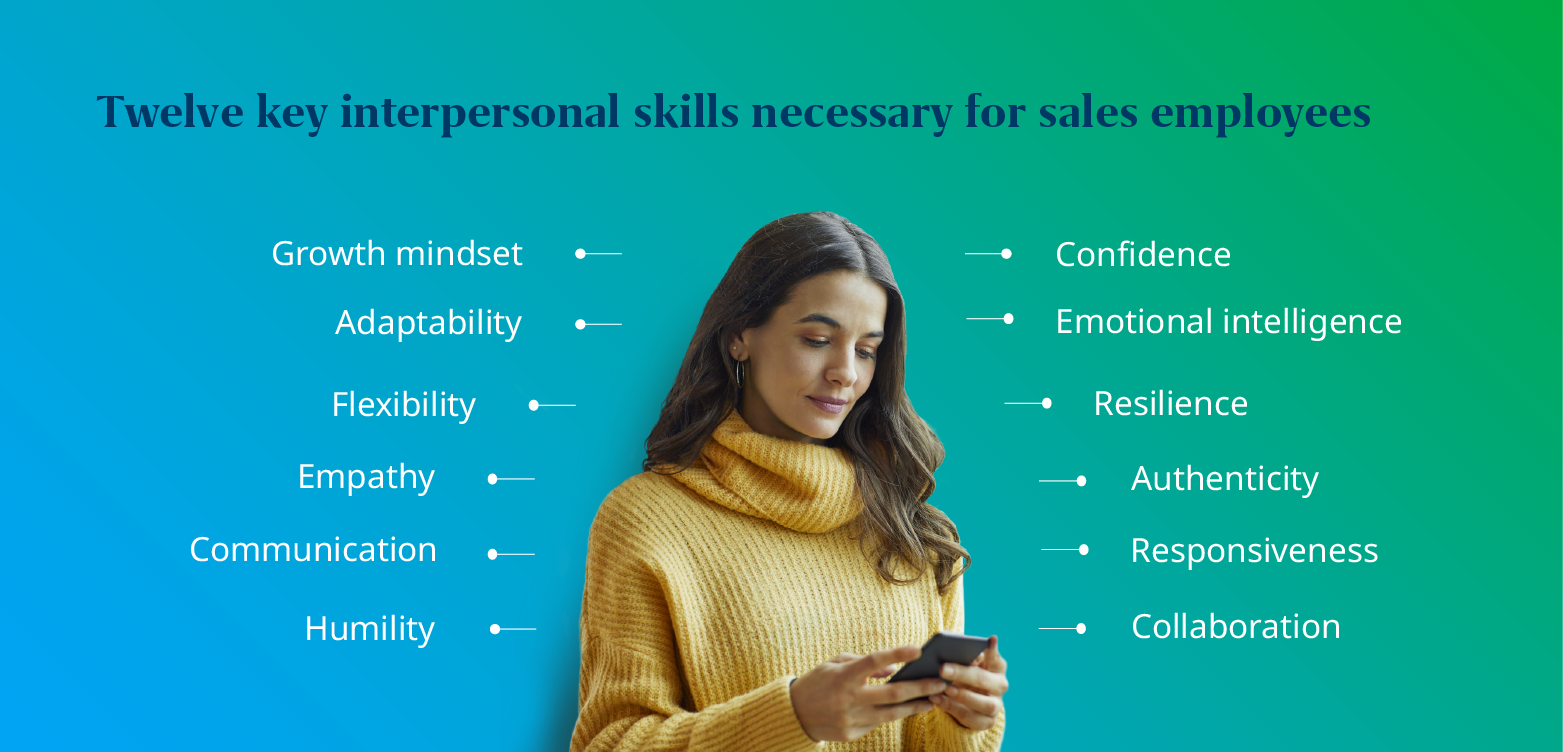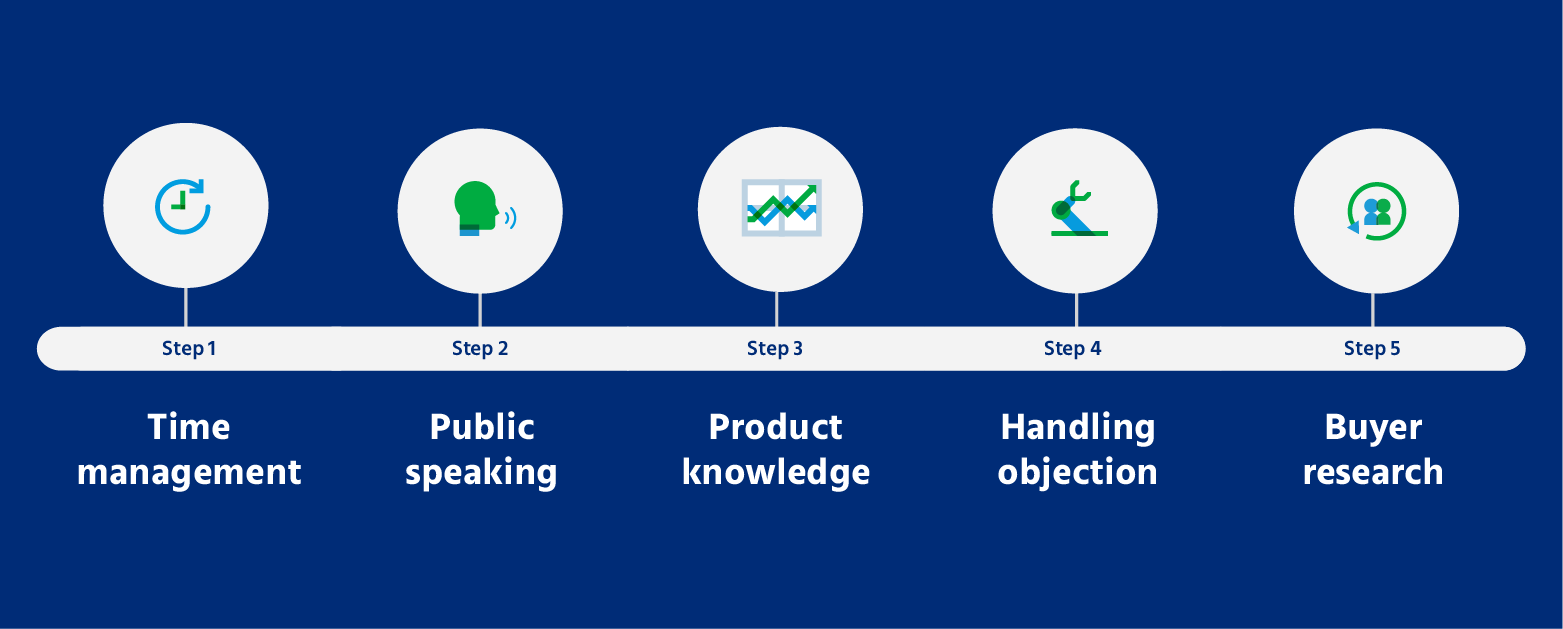6. Humility
Sales representatives must practice humility to build trust and rapport with potential clients. Humility helps establish credibility and resonance, improving the overall brand value. It shows that professionals genuinely want to understand customers’ needs and find solutions.
Additionally, humility encourages accepting mistakes and receiving constructive feedback, leading to improved performance and results in the future.
7. Confidence
Confidence enables sales professionals to assure a product or service’s value to potential customers. It is developed through experience, receptivity to learning, knowledge about services and products, trust in the brand, and determination.
Organizations must find candidates who are confident and clear-headed. This skill can also be developed through learning, starting from engaging with leads, pitching, and negotiating.
8. Emotional intelligence
Emotional intelligence is professionals’ ability to stay aware of their emotions and control their reactions in different situations. They should have the emotional intelligence necessary to influence prospects and receive desired results.
9. Resilience
Resilience in sales is the ability to bounce back from setbacks, challenges, and rejections that are a common part of the process. Sales is a high-pressure and competitive landscape, and sales professionals often face rejection and disappointment. Thus, these professionals must possess resilience and perseverance skills.
However, building resilience doesn’t mean ignoring negative emotions or avoiding a difficult sales call. It means finding healthy ways to manage difficult emotions to prevent burnout.
10. Authenticity
Customers know when businesses genuinely care about what products or services are sold to users. Therefore, find sales professionals who are authentic while interacting with clients.
Authenticity also involves keeping customers’ core interests at heart, being transparent about what’s achievable, and following up with an earnest interest in solving their problems.
11. Responsiveness
The digital era has improved responsiveness across industries. Therefore, when customers reach out to businesses with challenges, responsiveness by sales professionals improves the chances of sealing the deal.
Further, instead of waiting for the prospect to get back to them, sales professionals should be one step ahead. They should identify customer challenges, offer an invaluable solution, and move towards signing the deal.
12. Collaboration
Collaboration skills allow sales executives to work effectively with internal and external teams to achieve common goals. This involves sharing information, knowledge, and resources to improve business outcomes.
This skill also helps sales candidates identify new opportunities and develop strategies to reach potential customers.









 Behavioral Competencies
Behavioral Competencies Cognitive Competencies
Cognitive Competencies Coding Competencies
Coding Competencies Domain Competencies
Domain Competencies































Would you like to comment?